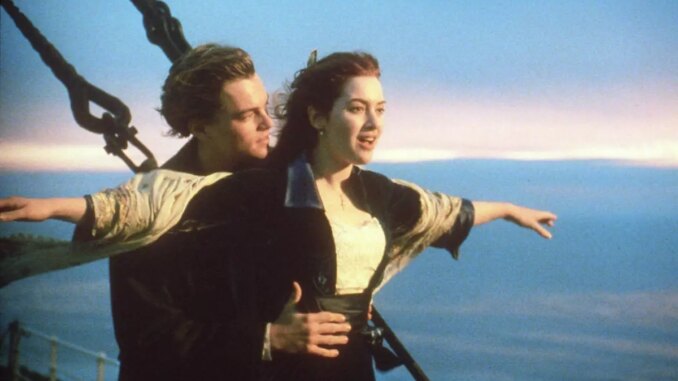
The Unsinkable Spirit: Kate Winslet and the Weight of Unkind Words
The image is etched into the collective consciousness: two young lovers, adrift in the frigid Atlantic, clinging to a makeshift raft barely large enough for one. For nearly three decades, the enduring question has playfully, then viciously, bounced across the cultural landscape: "Couldn't Jack have fit on that door with Rose?" It's a meme, a movie trivia point, a lighthearted debate. But for Kate Winslet, the young woman who brought Rose DeWitt Bukater to life with such vibrant passion, this seemingly innocuous question metastasized into something far more insidious: a relentless barrage of body shaming and cruel comments that, even now, decades later, still sting. Her recent decision to speak out is not merely a celebrity airing grievances; it is an illustrative testament to the enduring weight of public scrutiny, the absurdity of our societal obsession with female bodies, and the quiet power of reclaiming one's narrative.
The "door theory," while initially a genuine point of cinematic contention, quickly became a convenient Trojan horse for an uglier strain of criticism. It wasn't just about fictional physics; it was about the tangible body of a nineteen-year-old actress. The implicit accusation morphed into explicit ridicule: Rose (and by extension, Winslet) was "too big." She was "too heavy." Her weight, rather than the fictional circumstances of a shipwreck, was blamed for Jack Dawson's tragic demise. This was not the measured critique of a performance or a plot point; it was a personal attack, delivered with the callous anonymity of a global audience. Imagine, for a moment, being at the pinnacle of your young career, lauded for a groundbreaking role in one of the most successful films of all time, yet simultaneously facing a worldwide chorus of voices dissecting and demeaning your physical form. The triumph was tainted by an insidious undercurrent of shame.
Winslet's experience is, unfortunately, a microcosm of a much larger, pervasive issue. Women, particularly those in the public eye, are subjected to a relentless, often dehumanizing, scrutiny of their bodies. From the moment they step onto a red carpet, their worth is often measured not by their talent, intellect, or character, but by the circumference of their waist, the perceived flawlessness of their skin, or their adherence to an ever-shifting, impossibly narrow ideal of beauty. Tabloids dissect every pound gained or lost; social media amplifies every cruel whisper into a deafening roar. This isn't just about celebrity; it’s about the cultural conditioning that teaches us to view female bodies as public property, open for judgment, criticism, and unsolicited commentary. The "door" became a metaphor for the many ways society finds to diminish women, to pin blame on their physicality, and to reduce their complex humanity to a mere aesthetic judgment.
For years, Winslet absorbed the blows, the casual cruelty of strangers who felt entitled to comment on her shape. She was young, navigating unprecedented fame, and the constant barrage took its toll. To then, decades later, speak about this raw wound demonstrates immense courage and a profound commitment to using her platform for good. It's an act of reclaiming power, not just for herself, but for all the young women who have internalized similar messages about their bodies being "wrong" or "too much." By articulating the pain and absurdity of those comments, she pulls back the curtain on the silent suffering that often accompanies such public shaming. She illustrates how a seemingly trivial online debate can burrow deep into a person’s self-worth, leaving scars that linger long after the comments fade.
Kate Winslet’s decision to speak out is more than just a confessional; it is a vital act of defiance. It reminds us that behind every character, every iconic scene, there is a human being, susceptible to the same hurt and insecurity as anyone else. Her story serves as a powerful illustration of the insidious nature of body shaming, how it latches onto the flimsiest pretext, and how it can shadow even the most brilliant successes. More importantly, it highlights the quiet strength of resilience, the transformative power of a voice that finally says, "Enough." In a world still obsessed with superficial judgment, Winslet’s call for kindness, acceptance, and a focus on substance over size is a far more unsinkable message than any door could ever hope to be.